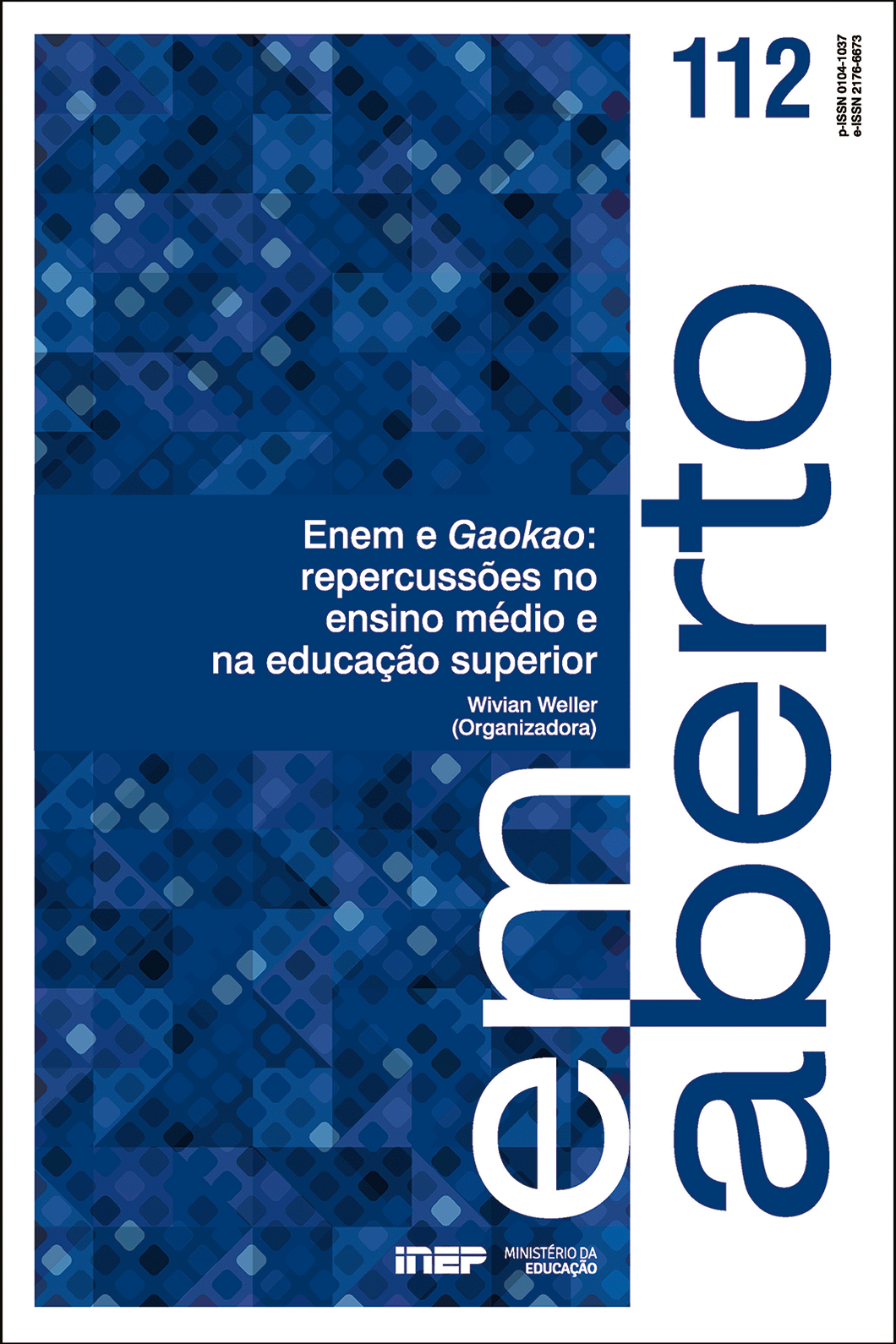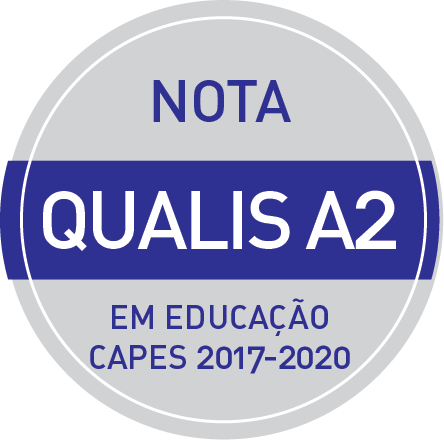National higher education entrance examination: an analysis of Gaokao
Abstract
This review article results from the research and analysis of the main bibliographic works about the Chinese National Exam, Gaokao, 高考, the first large- scale exam applied in the world and the largest exam in number of examinees. Initiated in 1952, this model is associated with imperial examinations, a set of exams aimed to qualify examinees for administrative and military positions in bureaucratic imperial China. Historically, notions such as meritocracy and justice associated with imperial exams influenced the creation of Gaokao. The exam setup is dynamic and may vary among provinces. However, despite its long history, criticism is constant and the reforms implemented, especially in the attempt to create alternative ways of admissions in universities, are strategies to lower the pressure the Exam puts on young Chinese people. The development of Gaokao’s history, with emphasis on its current form, content and criticism, reveals a traditional component that creates culture in the Chinese school life, inheriting from the imperial exams a combination of meritocracy and justice.
Downloads
References
BAIDU. [Portal Baidu]. 2019. Available in: www.baidu.com. Acess in: 6 jun. 2019.
BARBALET, J. Confucianism and the Chinese self: re-examining Max Weber’s China. Singapore: Springer Nature, 2017. 213 p.
CHINA. Ministério da Educação (ME). 中国教育在线 [Educação chinesa online]. [S.l.] [2021]. Disponível em: https://www.eol.cn/. Acesso em: 19 mar. 2021.
ELMAN, B. A. A cultural history of civil examination in late Imperial China. Los Angeles: University Of California Press, 2000. 889 p.
Gaokao. Prova de conhecimentos políticos. Beijing, 2020. Disponível em: http://www.Gaokao.com/zyk/gkst. Acesso em: 18 abr. 2021.
GUIREN, Y. Education in China. Beijing: Gale Asia, 2015. 392 p.
JI, Ruan. Guanxi, social capital and school choice in China: the rise of ritual capital. London: Palgrave Macmillan, 2017. 231 p.
JU-I, Y. Art transforms destiny: the unified examination and fine art education. In: SHIHKUAN, H.; YUH-YIN, W. (Org.). Education as cultivation in Chinese culture. Singapore: Springer, 2015.
LIU, J. Inequality in public school admission in urban China: discourses, practices and new solutions. Singapure: Springer, 2018. 221 p.
LIU, Y. Higher education, meritocracy and inequality in China. London: Springer, 2016. 220 p.
MOURA, C. P. de. O “velho” hukou na “nova” China urbana: reflexões sobre uma dualidade contemporânea. Anuário Antropológico, Brasília, DF, v. 38, n. 2, p. 225- 245, jul./dez. 2013.
WANG, L.; HUANG, X.; SCHNELL, J. Using Burke’s dramatistic pentad to interpret Chinese “Gao-Kao” High Stakes Testing and Stressing: paralleled testing in the U.S. as cross-cultural context. Kome: an International Journal of Pure Communication Inquiry, Hungarian, v. 1, n. 2, p. 55-63, abr. 2013. Available in: http://real.mtak.hu/20893/1/5Gaokao.pdf. Acess in: 12 abr. 2021.
WANG, R. The Chinese imperial examination system: an annotated bibliography. Lanham: The Scarecrow Press, 2013. 204 p.
WANG, Y.; ROSS, H. Experiencing the change and continuity of the college entrance examination. Chinese Education and Society, Chicago, v. 43, n. 4, p. 75- 93, ago. 2010.
XU, X.; MEI, W. Educational policies and legislation in China. Beijing: Springer, 2018. 278 p.
YU, L.; SUEN, H. K. Historical and contemporary exam-driven education fever in China. Kedi Journal of Educational Policy, Pennsylvania, v. 2, n. 1, p. 17-33, jan. 2005. Available in: http://citeseerx.ist.psu.edu/viewdoc/download?doi=10.1.1.462.1285&rep=rep1&type=pdf. Acess in: 12 abr. 2017.
ZHAO, Y. Who’s afraid of the big bad dragon?: why China has the best (and worst) education system in the world. San Francisco: Jossey-bass, 2014. 267p.
Copyright (c) 2021 Em Aberto

This work is licensed under a Creative Commons Attribution-NonCommercial 4.0 International License.
These are the terms of this Copyright Notice:
- I declare that I permanently forfeit in favor of the National Institute of Educational Studies and Research (INEP) all rights related to:
-
- editing, publication, reproduction, and distribution of the work;
- publication through digital and electronic media;
- translation of the work to any language;
- updating, re-printing, adaptation, and compression of the work;
- uploading of work in the publishing platform of INEP;
- divulging complete or parts of work through the World Wide Web (internet), whether in Brazil or foreign countries;
- authorization of third parties to execute any of the acts mentioned before.
- I explicitly declare that I am solely responsible for the opinions expressed in the work, and its publication does not violate the rights of third parties.
- I declare that the nature of said work is one of pro bono publico and, as such, I forfeit the right to any compensation regarding ownership rights granted.
- I authorize spelling and grammatical review of the manuscript, provided that the content and opinions therein remain unchanged.












